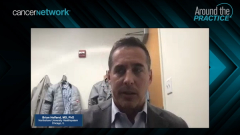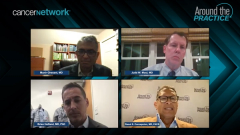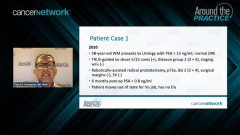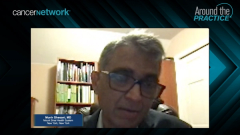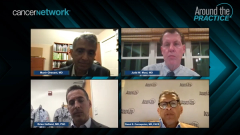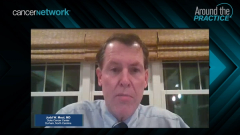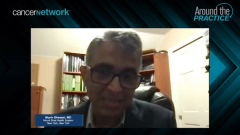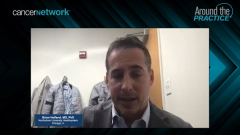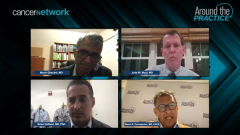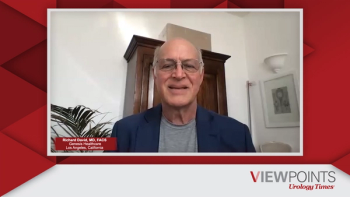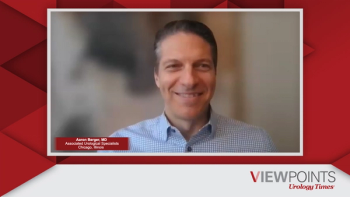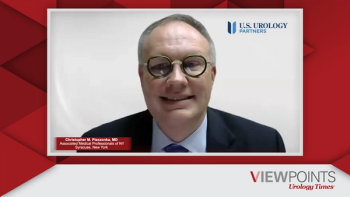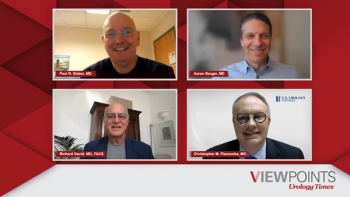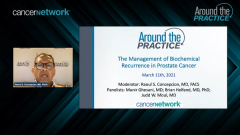
Case 1: 58-Year-Old Man 6 Months Post-Radical Prostatectomy
Raoul Concepcion, MD, presents the case of a 58-year-old man who had a radical prostatectomy 6 months prior and discusses how aspects of the case influence treatment selection.
Episodes in this series

Raoul S. Concepcion, MD, FACS: Here’s our first case; pay attention to the dates here. In 2010, we have a 58-year-old white male who presents to urology with a PSA [prostate-specific antigen] of 15 ng/mL, normal DRE [digital rectal examination]. He undergoes a TRUS [transrectal ultrasound] guided biopsy, and shows 5/12 cores positive, all Gleason group 2, which as many of you know, now has been broken out as 3+4 [Gleason grade group 2 (3+4)]. Additionally, the staging work-up, bone scan CT was negative. The patient underwent robotically assisted radical prostatectomy, and surgical pathology shows a pathologic T3a, so he had capsular involvement. Again, all Gleason grade 2; surgical margins and seminal vesicles were negative. Six months post-operation, his PSA was 0.8 [ng/mL]. Then, the patient relocates for his job and has no follow-up. Let’s go to the next slide.
He returns to the area in 3 years, and he has a PSA of 8.3 [ng/mL] now. Remember, his nadir, his 6-month PSA after surgery was 0.8 [ng/mL]. He’s completely asymptomatic. He undergoes a work-up, restaging, and he has a bone scan and CT scan, which are negative for metastatic disease. To the audience, would you start this patient on ADT [androgen deprivation therapy]? Again, he had a radical prostatectomy, pathologic T3, Gleason [group] 3+4, asymptomatic, PSA was 0.8 at 6 months, and now the PSA is 8.3 [ng/mL], completely asymptomatic. Let’s see here, two-thirds of the audience say they would start ADT; 17% said no; 16% to 17% said there’s not enough information.
Transcript edited for clarity.
Newsletter
Stay current with the latest urology news and practice-changing insights — sign up now for the essential updates every urologist needs.


